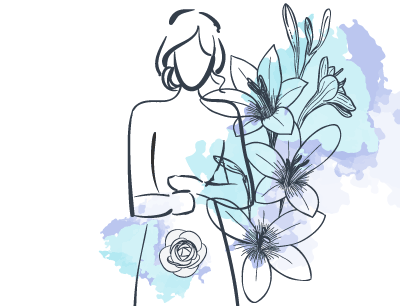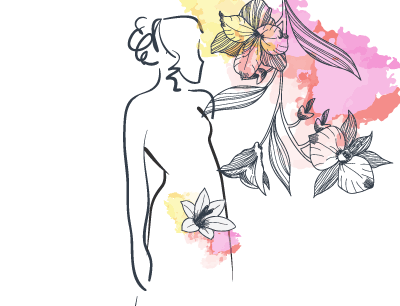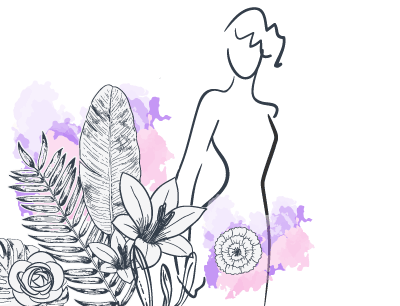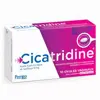

Being particularly delicate and sensitive, your intimate areas need daily hygiene maintenance specifically adapted to ensure your health and comfort. Is it always necessary to wash? Should I use wipes? What about tampons? From bad habits to bigger mishaps, it can be difficult to know how to manage! Discover some of our great tips to take care of your intimate areas!
1 - Choose the right cleanser

Important to know: It is recommended to wash one's intimate areas only once a day - twice in exceptionnal circumstances, but not more - during one's period so as to not disrupt the balance of the vaginal flora which acts as a "natural protector". For this, an external cleansing is required only. Vaginal douches should not be used as they are far too aggressive and useless as the interior of the vagina has its own natural, self-cleaning features.
What product should I use for cleaning? In order to maintain the balance of vaginal flora, we absolutely insist on a soft, pH-neutral cleanser. It's as simple as that! There are a wide range of products available that are specially formulated for intimate cleansing.
Wipes should only be used in the most exceptional of circumstances, and, by all means, make sure that they are non-alcoholic!
Some good habits to follow:
- • Opt for knickers (preferably cotton) instead of thongs. Some sacrifices need to be made!
- • Wash underwear at a minimum of 40°C.
- • Avoid trousers that are too tight.
- • Wipe from front to back, not the other way around.
- • Wash hands before touching your intimate area.
- • Dry yourself properly after showering and avoid wearing wet swimwear for too long.
2 - Use the right protection for the right time

Important things to remember: Intimate hygiene products should be used only during mestruation, except in exceptional cases (i.e. pregnancy, significant weight loss etc.). Therefore it's necessary to avoid wearing panty-liner all the time as this can lead to irritation for the genitals which need to be able to breathe.
What kind of protection can I use during my period?
In accordance with your habits and preferences, you can use regular sanitary pads or tampons (more discreet, but people are either for them or against them). Opting for tampons still means having to use pads during the night in order to allow for the "good" vaginal secretions to do their work.
So what's this fuss about then?
In trying to make the most sophisticated tampons and pads available, manufacturers use chemical products and chlorine-based treatments to make them seem as similar as possible to cotton.
To avoid irritations and allergic reactions, it's preferable to choose natural cotton or organic fibres. Another alternative is a menstrual cup.. This is becoming a popular choice with natural rubber and hypoallergenic silicone varieties available. With economical, practical, ecological and comfort options the choice is yours!
Smart habits to adopt:
- • Change your protection at least 3 times per day.
- • Never leave a tampon in for more than 4 hours at a time.
3 - When things get a little unpleasant...

Dryness, yeast infections, herpes, irritation, vaginal discharge, unpleasant smells... there's a long list of worries out there!
A number of factors, not including poor hygiene or sanitary products, can be the source of these issues such as taking the pill, hormonal imbalances (relating to pregnancy or the menopause, for example), using certain medication etc. but also stress and smoking too. Even if it's not always easy to find the source of it, thankfully, it's often quite easy to remedy!
There are all kinds of treatments available that are specifically targetted at fixing all these little worries.
If these issues do become more frequent and troublesome, we advise:
- • Changing your cleansing product. Opt for ones that are anti-irrant, moisturising etc.
- • Consider probiotics as a pre-emptive measure or for during 'at risk' times to restore and strengthen the flora.
- • Be more bold and always make sure to find out the most you can from your gynaecologist!

